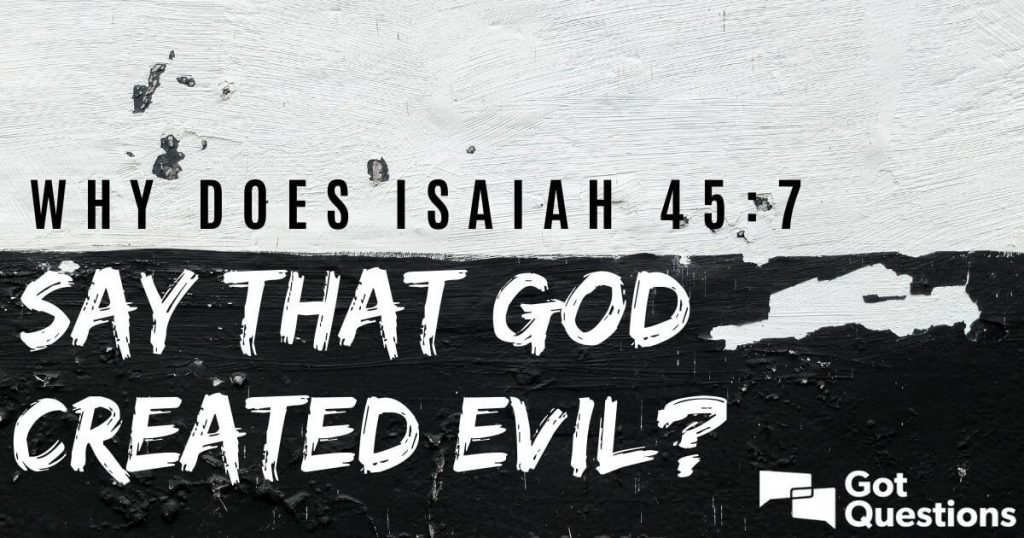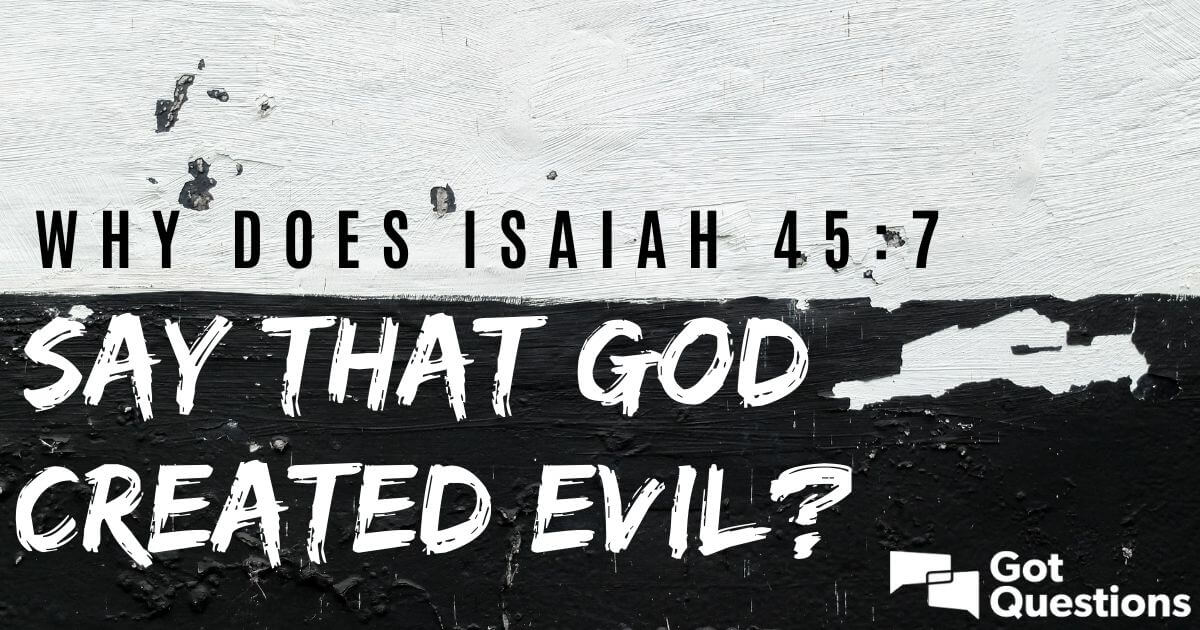
Isaiah 45:7 in the King James Version reads, “I form the light, and create darkness: I make peace, and create evil: I the LORD do all these things.” How does Isaiah 45:7 agree with the view that God did not create evil? There are two key facts that need to be considered. (1) The word translated “evil” is from a Hebrew word that means “adversity, affliction, calamity, distress, misery.” Notice how the other major English Bible translations render the word: “disaster” (NIV, HCSB), “calamity” (NKJV, NAS, ESV), and “woe” (NRSV). The Hebrew word can refer to moral evil, and often does have this meaning in the Hebrew Scriptures. However, due to the diversity of possible definitions, it is unwise to assume that “I create evil” in Isaiah 45:7 refers to God bringing moral evil into existence.
(2) The context of Isaiah 45:7 makes it clear that something other than “bringing moral evil into existence” is in mind. The context of Isaiah 45:7 is God rewarding Israel for obedience and punishing Israel for disobedience. God pours out salvation and blessings on those whom He favors. God brings judgment on those who continue to rebel against Him. “Woe to him who quarrels with his Master” (Isaiah 45:9). That is the person to whom God brings “evil” and “disaster.” So, rather than saying that God created “moral evil,” Isaiah 45:7 is presenting a common theme of Scripture – that God brings disaster on those who continue in hard-hearted rebellion against Him.
source: gotquestions.org
